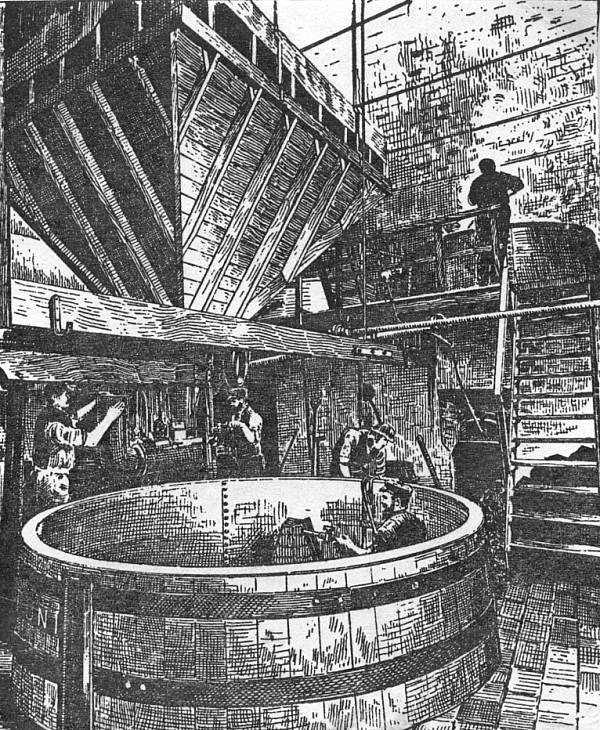



Sorry construction junkies, it’s Sara again so no detailed info on the construction progress except that concrete was poured into the drainage trenches yesterday, the cold room was delivered today – my birthday, btw.
Did anyone catch that guy on NPR a couple days ago talking about the recession-proofness of beer? What did I tell you? There seems to be a lot of talk about that these days. I wonder if the American Beer and Brewers Association (ABBA – if there isn’t such an organization, there oughta be. (That was a joke but my editor didn’t get it and told me to say the “Brewers Association” so it sounds like I know something.)) has launched some big public education campaign or something. But I digress. My point is simply to point out that I wasn’t just making that up in my last post.
Another thing I’m not making up is that, supposedly, the most robust recession-proof sector is green technology. Fremont Brewing Company is hopping on that band-wagon for sure – but for all the right reasons (not just to get federal/state stimulus money or small-business tax breaks or low-interest loans – not that we would turn those down or anything if offered…). I’ve already mentioned FBC’s efforts to reduce its carbon footprint and also use organic ingredients and you can read more about that stuff in the real sections of this website. The back story is that we’ve been like this since the 80’s and finally the circle has caught up to our way of thinking. But there’s a whole other aspect of green that I don’t think Matt has mentioned.
FBC is located in an 8,000 sq. ft warehouse in Fremont. Not needing that much space, Matt has sublet half of that space to Blue Marble Energy, a start-up that produces food flavorings out of algae and other biological matter and the by-product of the manufacturing process is gas (methane I think).
Blue Marble Energy is going to use Matt’s spent grain to make their product and power their and FBC’s operations with the gas. How cool is that? Once Blue Marble ramps up, they’ll sell extra energy back to the grid (I’m not really sure how that works). Matt could have sublet to a kite manufacturer or a juggler or whatever but he found this company by talking to everyone who would listen about this dream to zero out carbon emissions in a microbrewery and the connection was made.
This symbiotic relationship reduces carbon emissions because the spent grain (very heavy) will not be transported somewhere for disposal or composting. And Blue Marble’s production costs will be lower because part of their raw material is free (and right next door). And the “waste” will be used for energy, obviously better than funneling it into the atmosphere. Additionally, while we’re fortunate in the Northwest to have fairly clean hydropower thanks to the rivers running off our mountains, the electricity that we don’t use isn’t just sitting around. City Light sells it on the grid to other places that might have access only to coal-generated power – bad, bad, bad. So the energy that Seattleites don’t use because of conservation or the above-mentioned re-use of waste helps minimize the consumption of dirty electricity by freeing up more of the clean stuff for use in flat places without big rivers and lots of gravity.




